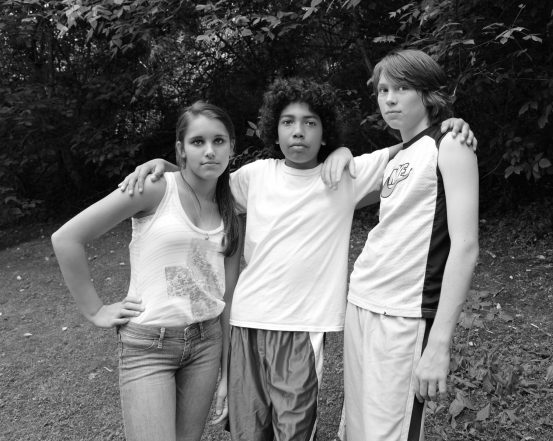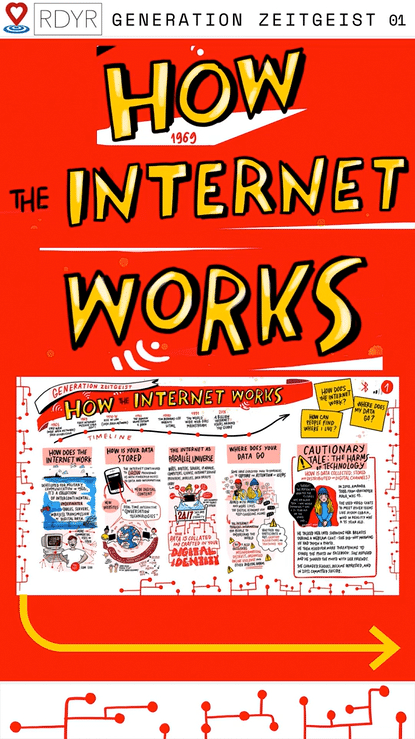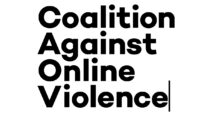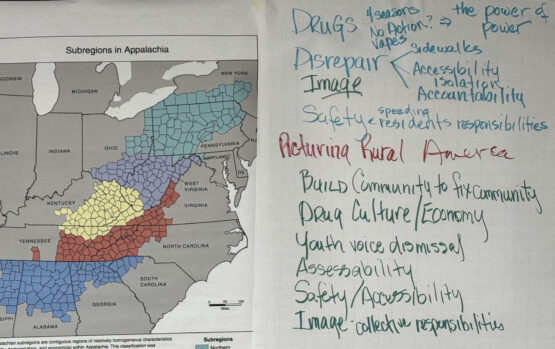
Documentary Screening - Raised By Wolves
“This is the first true thing I've seen about my generation.”

The Rural Digital Resilience project provides research and educational resources as part of programming for the documentary film Raised By Wolves. Raised by Wolves peers into online youth culture in Appalachia and reveals the risks of exposure to harmful content, manipulation and exploitation from AI, social media and within online gaming spaces and addresses the rise of nihilistic violent extremism.
The social impact strategy includes screening events, facilitated community conversations, focus groups and interdisciplinary workgroups in Appalachia and rural communities nationwide, with the goal of supporting more informed, resilient communities where violence cannot take root.
This work addresses conditions of susceptibility, including economic displacement and alienation from one another and emphasizes empathy to nurture social cohesion within our manipulated and divided communities.
This work also includes a pioneering research program exploring moral injury – defined as ‘the psychosocial consequences of involvement in and exposure to morally transgressive events’ – as experienced by young people through exposure to harmful content online. This research uses a moral injury framework to assess online harms to young people and to create resources for parents, educators, coaches, faith leaders, clinicians, and other practitioners to reconnect with a generation at risk.
Do No Harm.
Trauma-informed Resources and Communities of Practice
Reporting on Appalachia
Resources to help journalists understand the complicated history of this place, access to subject matter experts on topics of regional relevance, and resources for Appalachia-based journalists and media makers.
Reporting on Religion
Witness: Democracy, Faith Communities and Local Journalism in America is a community of practice bridging divides of mistrust, isolation and misunderstanding between three key pillars of democracy.
Reporting on Addiction
Supporting a collaboration
of addiction science experts, professional journalists and educators who want to improve the media's portrayal of
addiction and recovery with trainings and research-based resources.
Support for Local Journalists
Training, peer-support, safety and security resources for small newsrooms and independent journalists for addressing the unique challenges for at-risk reporting at the local level.
Rural Insights.

Three friends, Cabell County, West Virginia. Photo by Dennis Savage, Looking at Appalachia
Cultural Dispatch
Generation Zeitgeist - The View From Here
Content curated by our youngest media makers, featuring cultural analyses and insight into the inner lives of Zoomers online with a twist — directly from Zoomers. Compiled by Gen Z and Gen Alpha, this space will feature trending topics, from memes, music and fashion to the fears, politics, tech and trends influencing our spaces.
Why Appalachia Matters
We've seen the future. It looks like Appalachia.
We believe the story of Appalachia reflects the story of our country. We work with local media across the region and within other rural communities nationwide to tell rural stories with dignity, agency and local truths. These collaborations surface cultural voices, media makers, creators and innovators representing Appalachian and rural identity across diverse generational perspectives.
> Digital and AI Safety for Young People
This series of training modules for youth, parents and caregivers provides resources for young people to navigate online risks, digital and AI safety and security, and learn how to minimize harm to themselves and peers.

Rural Youth Catalyst
Our research and educational programs cultivate digital entrepreneurship for rural youth, while strengthening resources for mitigating harms including safety and security, susceptibility to manipulation and exposure to violence and other harmful content. We take a collaborative, solutions-oriented approach and work with a network of educators, journalists, technologists, public health experts, policy makers, and young people to ensure multiple perspectives are represented in addressing the effects of new technologies on rural communities.
Our partner organization, the Rural Youth Catalyst believes that collective wellbeing, including digital wellbeing, is foundational for rural young people to flourish and communities to thrive and to improve the outcomes for rural young people. Their work elevates rural youth visibility, voice and leadership, innovative program design and practice, and informs systems and policies that enable economic opportunities for rural young people.

We are a founding member of the Coalition Against Online Violence, a collection of global organizations working to find better solutions for journalists, researchers and civil society facing online abuse, harassment and other forms of digital attack. View the Coalition’s step-by-step guides and key resources.

